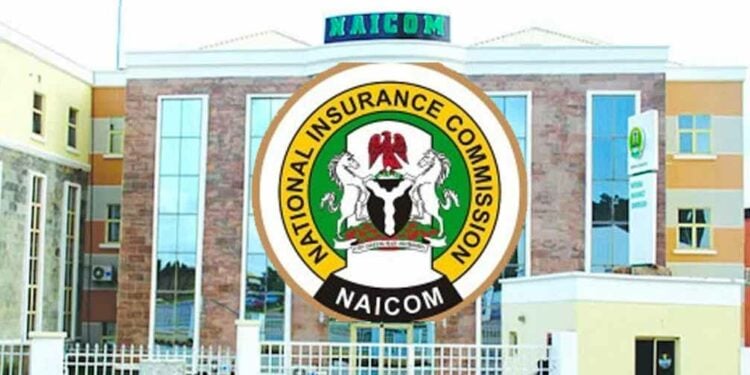The National Insurance Commission (NAICOM) and the Federal Road Safety Corps (FRSC) have joined forces to enforce compulsory Third-Party Motor Insurance across Nigeria. The two government agencies inaugurated a Joint Committee on Enforcement of Compulsory Third-Party Motor Insurance in Abuja on Wednesday, a move described as a major step towards ending fake insurance practices and ensuring proper protection for motorists and accident victims.
According to a statement released by NAICOM, the inauguration took place at the commission’s headquarters in Abuja following an earlier agreement reached between both agencies. The initiative, the statement said, marks a new phase in the implementation of the Nigerian Insurance Industry Reform Act 2025, a key policy framework designed to promote transparency, accountability, and compliance within the insurance sector.
The new joint committee will work to ensure effective enforcement of Third-Party Motor Insurance, create a central database linking insurance and vehicle registration records, and ensure timely compensation for road accident victims. The initiative also seeks to strengthen coordination between NAICOM and FRSC in ensuring that every vehicle on Nigerian roads is properly insured.
Speaking during the inauguration ceremony, the Commissioner for Insurance, Mr. Olusegun Omosehin, described the collaboration as a historic step towards achieving a transparent and efficient insurance ecosystem in Nigeria. He commended the FRSC for its partnership and commitment to improving safety and accountability on Nigerian roads.
“This collaboration will deliver tangible benefits to Nigerians through the enforcement of compulsory Third-Party Motor Insurance, integration of insurance and vehicle registration databases, enhanced protection and compensation for road accident victims, and increased public education on insurance obligations and consumer rights,” Omosehin said.
He explained that the initiative aligns with President Bola Ahmed Tinubu’s Renewed Hope Agenda, which focuses on reforms across key economic sectors to promote inclusive growth and national development. Omosehin added that the partnership between NAICOM and FRSC is expected to result in fewer road accidents, more insured motorists, and greater public confidence in the insurance industry.
“This partnership is not a one-off event,” he added. “We are open to continuous feedback, regular evaluation, and integration of new ideas as we move forward. The overall goal is to build a culture of compliance, responsibility, and trust among road users and insurance operators.”
In his remarks, the Corps Marshal of the Federal Road Safety Corps (FRSC), Shehu Mohammed, praised NAICOM for its commitment to reforming the insurance landscape in Nigeria. He said the collaboration would enhance the enforcement of compulsory motor insurance nationwide and improve the welfare of motorists and road users.
“This partnership will improve enforcement of compulsory motor insurance across the country. Through technology integration, data sharing, and field operations, we can protect motorists and ensure that accident victims receive timely support and compensation,” Mohammed said.
He described the joint initiative as a model of inter-agency cooperation, adding that it would help the federal government achieve better coordination in road safety management and insurance compliance. According to him, when public institutions work together effectively, citizens benefit from improved services and greater protection under the law.
During the event, the Deputy Commissioner for Insurance, Mr. Ekerete Gam-Ikon, presented the Terms of Reference for the Joint Committee. He said the committee would focus on enforcing compulsory Third-Party Motor Insurance, reducing the number of uninsured vehicles on Nigerian roads, ensuring prompt compensation for accident victims, and promoting public awareness on insurance obligations.
Other responsibilities of the committee include enabling real-time verification of insurance through digital integration, supporting microinsurance schemes for commercial drivers and passengers, and improving emergency response coordination during critical rescue moments often referred to as the “golden hour.”
The committee, which is co-chaired by senior officials from both NAICOM and FRSC, will also coordinate joint field operations, organise public sensitisation campaigns, and review policies regularly to improve compliance. NAICOM will serve as the secretariat of the committee, providing administrative and technical support.
Industry experts have welcomed the initiative, describing it as a timely intervention that could help address the high rate of uninsured vehicles in Nigeria. According to available data, more than 60 per cent of vehicles on Nigerian roads are not covered by valid insurance, posing serious risks to motorists and accident victims.
Observers believe that the integration of NAICOM and FRSC’s databases will make it easier for law enforcement officers to verify insurance documents instantly and detect fake policies. They also expect the collaboration to improve revenue generation for the government while protecting citizens against exploitation by fake insurance agents.
The launch of the joint committee signals a new era of digital enforcement, transparency, and collaboration in Nigeria’s insurance and transport sectors. Both agencies have pledged to sustain the partnership and ensure that the compulsory motor insurance policy becomes a nationwide standard for all vehicle owners.
